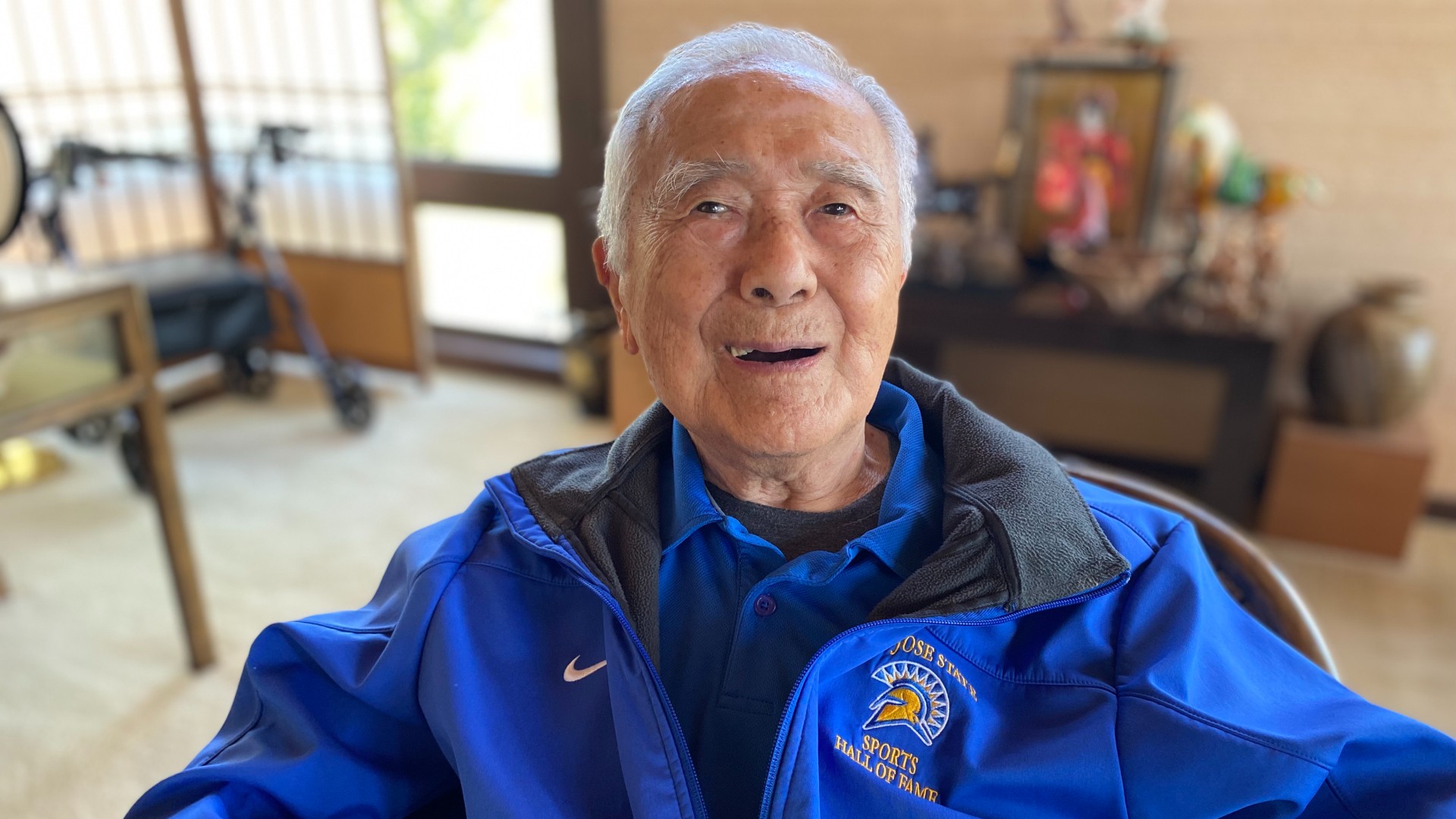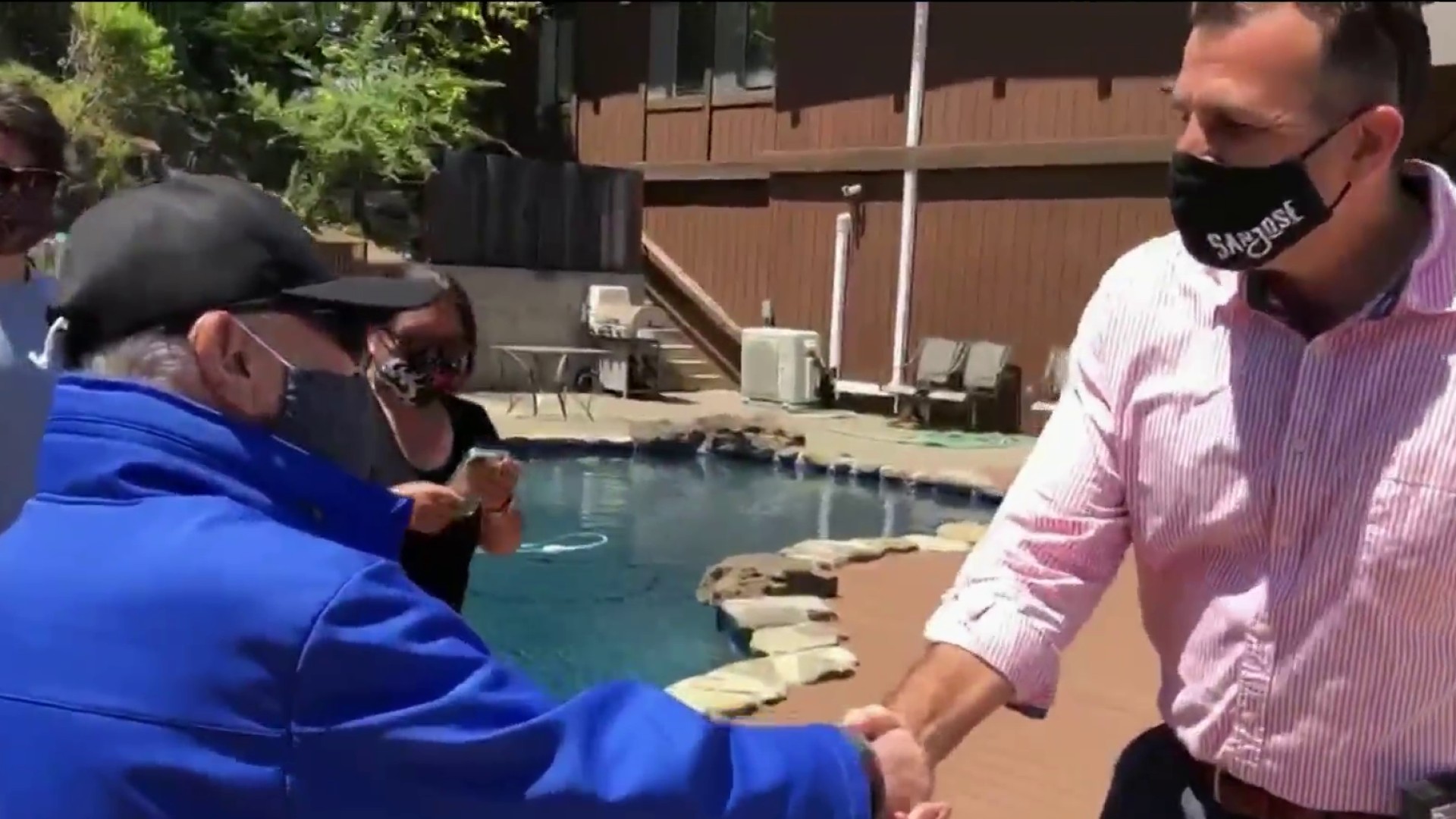Legendary San Jose State University judo coach Yoshihiro "Yosh" Uchida died Thursday, the school's judo program said. He was 104.
Uchida coached the first U.S. Olympic judo team and put San Jose State's program on the map as a powerhouse in the sport.
"While it’s a sad day it is also a day for gratitude for all the incredible contributions he made to judo and his influence on innumerable people," SJSU Judo said in an Instagram post. "Rest in peace and glory like the king you are Coach Uchida."
The United States Judo Federation called Uchida a "true legend in the world of Judo."
"His dedication, passion, and unwavering commitment to the art have left an incredible mark on all who had the honor of knowing him," the federation wrote in a post on Facebook. "Sensei Uchida’s legacy will continue to inspire and guide future generations. Rest in peace, Sensei. Your teachings and spirit will forever be with us."
SJSU Judo said Uchida was surrounded by his family when he died.
Former students of his said they were sad to hear of his death.
Colton Brown, a former student of Uchida's, said if it wasn't for his coaching he would not be where he is today.
"At the time I didn’t understand it, but I graduated and accomplished what I wanted in judo," Brown said. "Without school, I wouldn’t be in the position I am today. So I credit him for teaching me that at a very young age."
Get a weekly recap of the latest San Francisco Bay Area housing news. Sign up for NBC Bay Area’s Housing Deconstructed newsletter.
Brown is a former two-time Olympian from SJSU. Currently, he is in Spain helping Team USA prepare for the 2024 Paris Olympics.
"Uchida was the greatest man I’ve ever known," he said. "I’m grateful for the lessons that he taught me and my goal now, my job now, my duty is to use this to impact the next generation in the most positive way. If I can be half the man that he was, then I’ve accomplished something with my life."
Uchida, who grew up in Calexico in southern Imperial County, learned judo at the age of 10 at the urging of his mother.
Uchida's career as a judo instructor began somewhat unceremoniously in the 1940s while he was a student at San Jose State. The school's athletic director saw him on campus one day and asked if he could coach judo.
Uchida's new coaching career was soon interrupted by World War II. He was drafted into the military while his family was being sent to Japanese internment camps. After the war, he needed a job and resumed his coaching post. He was working to create weight divisions and establish judo as a competitive sport in the U.S.
In 1964, he led the first U.S. judo team to the Olympics in Tokyo, Japan – the birthplace of judo. His team included Japan-born Paul Maruyama, which was significant because just over 20 years earlier, Uchida's family was segregated from the rest of the nation in the camps. Now, two men of Japanese ancestry were representing the U.S. in the world's most prestigious sporting event.
The ingredients that turned San Jose State into a judo powerhouse are many. Uchida regularly brought in coaches from Japan to raise the bar of instruction. Uchida also focused as heavily on academics as much as athletics – often peppering his judokas about their GPAs.
Fellow coach Mike Swain said he learned so much from Uchida in the 40 years they coached together. He said on top of being a "great teacher" Uchida was also a "life coach to so many students."
"To American Judo, he’s like the godfather or grandfather of American Judo," Swain said. "His whole life story is right here in this hall. So this is really special to have this building named after a Japanese American citizen."
Uchida's family preparing to host a small private service Saturday to honor his memory.



